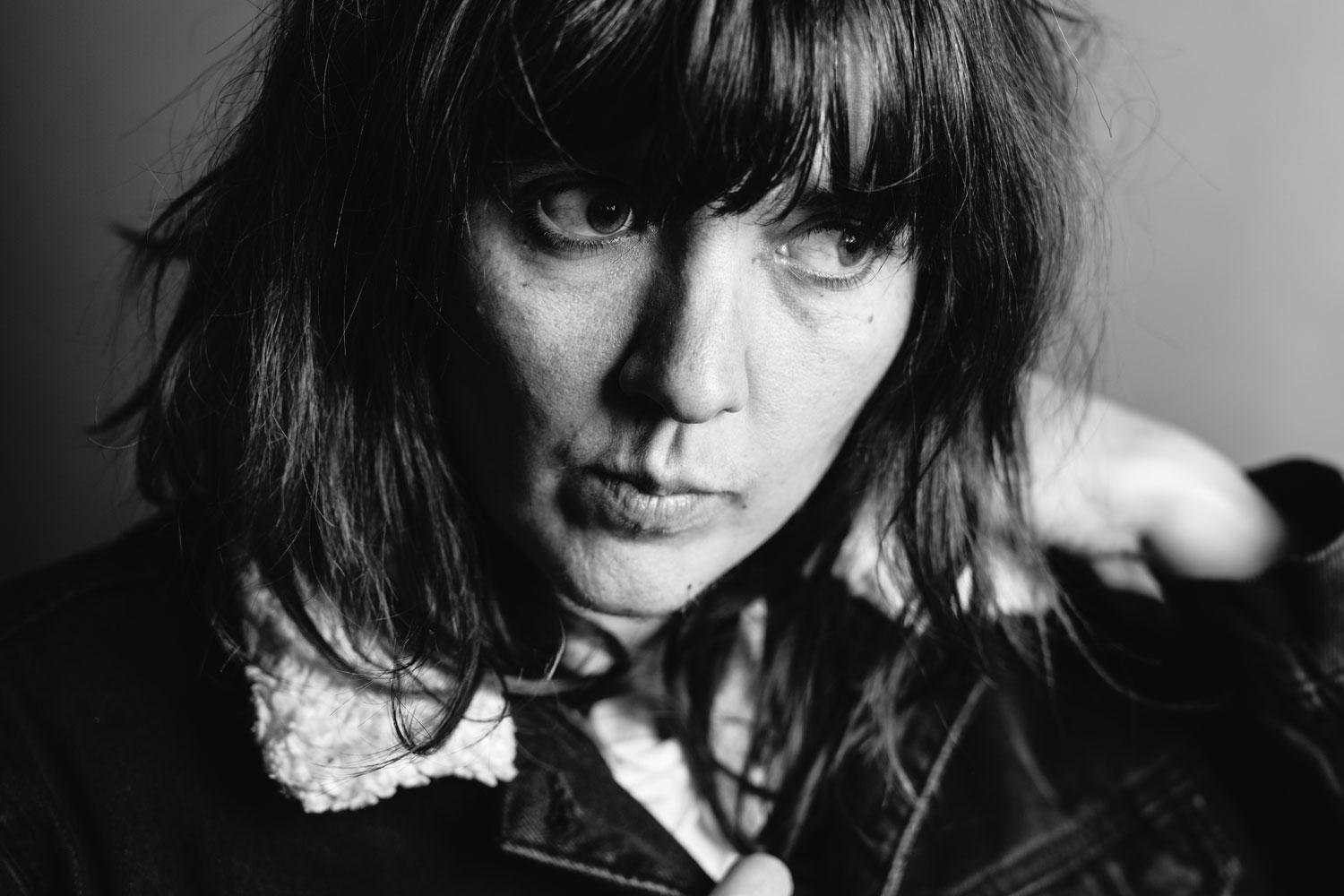Courtney Barnett’s ‘Tell Me How You Really Feel’ is a record at war. Even the static title is constantly on the move. “It’s a bit of a floating statement; it could be earnest, sarcastic, a question or a statement directed at me or you or anyone,” she considers. In some lights, it’s a plea. In others, a challenge. “It could be any of that. It’s just me not being aware of my emotions, mostly. It is said earnestly I think, but it could be anything.”
And that freedom rages throughout Courtney’s second album like it’s raged through her story so far. Her debut ‘Sometimes I Sit and Think and Sometimes I Just Sit’ built on a sideways glance at the world that was crafted in early EPs ‘I’ve Got A Friend Called Emily Ferris’ and ‘How To Carve A Carrot Into A Rose’. This time out though, its message kept spreading. Courtney was telling simple, heartfelt stories of the everyday, of posters in kitchens and of existential crises wrapped around the desire for control, and people saw themselves within. It wasn’t long before Courtney was being labelled a voice of generation, though she’d only scoff at the idea.
What followed was two years of near continuous shows around the world. “There were moments of burnout and general ups and downs of touring, but that always happens. I would normally approach each day feeling like I am so lucky to be doing this. People don’t realise how privileged it is to be able to travel and play your songs to people onstage… It’s incredible. I never really thought I’d make it around the world, but that was a nice bonus. I’ve got to go to some pretty incredible places.”
And while Courtney’s music has reached more and more people in the past few years, things haven’t changed as much as you might imagine. “Things have changed a little bit, obviously, but I feel like everyone else thinks it’s bigger than it is. Lots of people ask me about it as if it’s this life-changing thing, and I’ve become a different person, but it doesn’t feel like that to me.”
[sc name=”pull” text=”I try to look at everything as being a possible inspiration”]
Playing her music to people always felt tangible. Being nominated for a Grammy, “that was just another world.” Not that she’s now dreaming of another planet. “I’m not like, ‘Fuck, I can’t believe I didn’t fucking win that award’. It’s just a funny thing that happened,” she grins. “I don’t feel like this record is too different, but I feel like it’s a nice progression of musicality. I feel a bit more confident as a guitar player and having done a couple of different projects for other people and playing so much for two years, to me it feels like the next thing. It’s hard to guess how different it is to other people. It’s not that crazy but it feels like a natural progression.”
Courtney Barnett is always busy. One week we’re talking in a London pub, surrounded by snow. The next, she’s in Melbourne, preparing for the release of her new album by playing guitar on tour with Jen Cloher. “The record is all done,” she reasons. “There’s nothing to focus on really, I’m just doing interviews here and there, but I don’t know what I’m talking about anyway, so there’s no work I can put into that. I just hope for the best.”
“I’m always kinda busy,” she says with a shrug that comes from knowing nothing else. “I like keeping myself busy. When I’m doing nothing, I don’t like it. I like having something to work towards and to aim for and to keep me flexing my creative muscles. I don’t talk about it all the time, but I like doing it. I’m never doing nothing because there’s always something happening or there’s some little project I’ve got going. If there’s totally nothing, I’ve got Milk Records which I help run. I’m always here working on the store. There’s always something fun going on.”
It’s the sort of full-tilt approach that comes from “trying to look at everything as being a possible inspiration. Even relaxing and reading, that feeds something eventually. I’m pretty lazy with reading, but I’m trying to get back into it,” she notes. “There’s always some idea that it can spark, some way you can feed it into everyday life. I try and look at everything as a positive inspiration.”
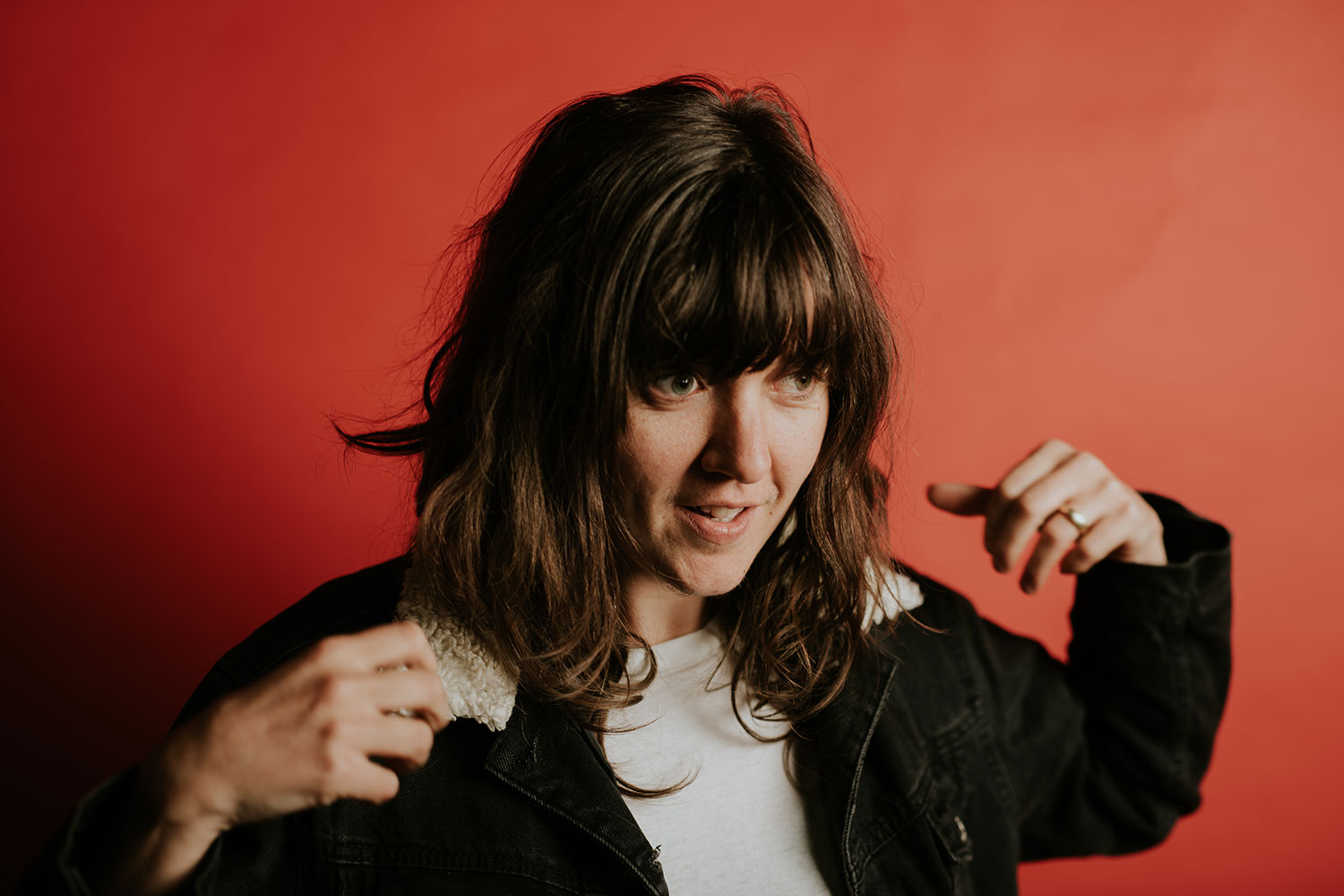
Since finishing the album, Courtney hasn’t written another song, but she has played with poems and little bits of writing. Her desire to be constantly on the move doesn’t stop just because she’s sat on an album. “Keep learning is my biggest thing. There’s so much to learn and so many new things that I have no idea about. That’s pretty amazing. I just keep writing songs and see what they turn into, that’s always a bit of a mystery.”
Courtney Barnett takes fleeting moments and makes them shine. ‘Tell Me How You Really Feel’ is made up of personal reflection, raw emotion and “little stories, but they’re integral to the point or whatever it is I’m talking and dealing with. Most of it’s very truthful.”
Finished in the studio last year after two years of on again, off again work, ‘Tell Me How You Really Feel’ was as difficult as the tales promise, not that you’d know from listening. “Just the sitting down and facing it by myself every day was difficult.” It was a stark contrast to Courtney’s constantly on the go pace of previous years, “but that’s just me in general. I’m always trying to avoid thinking about how I feel, I normally just try and do something else.”
This time out though, “I was trying to feel things and focus on them. I really sat down and wrote. For a lot of it, I was just writing endless pages with no real direction or meaning, then I went through them and extracted meaning.
“I never felt like I had a really solid idea of what I was saying, but it made sense over time. I was writing really personally, and a lot of the time, I was writing a lot of letters to people, trying to express how I felt. I was doing this thing where I’d write letters to friends and not send them. It’s that thing where you try and understand what you’re thinking so you can express it. If people that I knew upset me, or frustrated me or if they were upset, it’s an exercise I do to lay it down. It doesn’t always work though; sometimes it just goes around in circles.”
[sc name=”pull” text=”I told everyone I didn’t have any songs, so they expected nothing from me”]
Difficult, yes. Pressure? No chance. “It was just a real study of myself. I kept working on it, and I told everyone I didn’t have any songs, so they expected nothing from me. I try and trick myself sometimes, just try and trick my brain into what I can do. There was no pressure from anyone but myself. I’m pretty hard on myself, so that was pretty intense but that’s just my problem to deal with,” she shrugs.
‘Tell Me How You Really Feel’ does a lot of things well. It soothes broken hearts, it stokes raging fires, and it holds mirrors up to dusty, forgotten worlds. It feels familiar throughout. Not because Courtney is treading well-worn paths or echoing tales already told, but there’s something in the way she sees things that feels comforting. She treats the audience like an old friend, that connection is instant and unbreakable. “I know that feeling,” she smiles. “I love that feeling in music; it’s like it’s been there.” That feeling of friends in strangers and strangers in friends dances through ‘City Looks Pretty’ as it sings, “Sometimes I get sad, it’s not all that bad. One day maybe never, I’ll come around.”
“That song is kinda weird,” warns Courtney. “I started writing it in my early twenties, and it didn’t get anywhere, so I put it away. I always liked it, so I tried to revisit it, and I realised that some of the lyrics were quite adaptable to my current state of mind, where I’ve been and what I’ve done. I wrote it in a period of my life where I was on anti-depressants and didn’t leave my room for a while. I’d go out, walk around the city, I’d come home and my girlfriend at the time would ask, ‘Where have you been?’ Then it jumps forward to the present moment, but it still feels like it crosses over.”
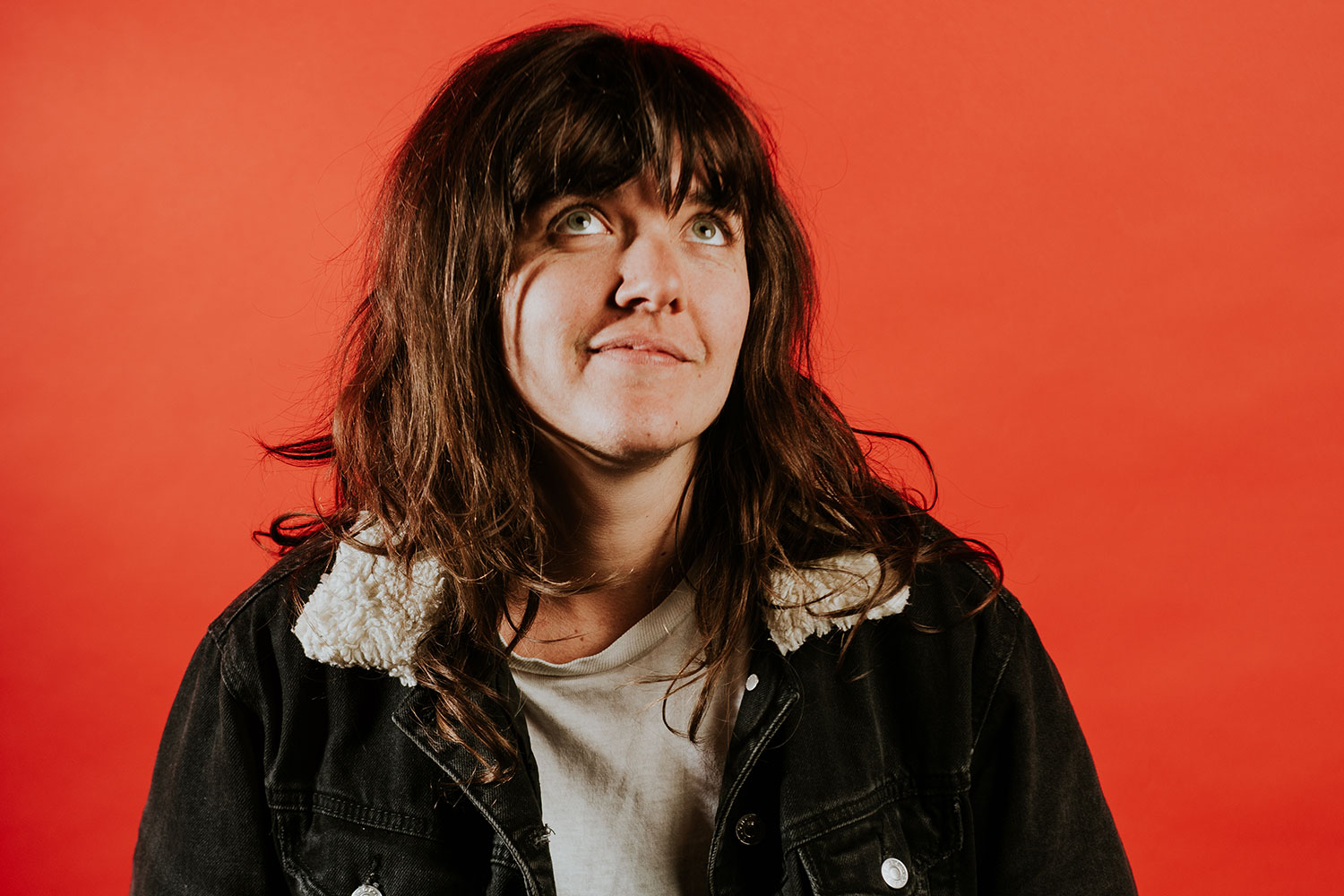
Those feelings of alienation, loneliness and being a burden never disappearing as fully as you’d like. “You should be grateful,” it grapples. “Pull yourself together and just calm down.”
There’s a lot of that tough love throughout the record, some of it sincere, some of it sarcastic. All of it directed at Courtney. All of it directed at you.
“Yeah, that’s just everyday. A lot of it was me trying to alter behavioural patterns, recognising when you go to a negative place and how to redirect your brain to somewhere else. I can never quite figure out if I’m negative or positive. I think I’m an optimistic pessimist, that’s the best way I’ve ever thought to describe it. My go-to thought pattern is negative, but I’m always trying to flip it around. It’s a constant battle I guess, and that’s what comes through in the songs, that scolding of myself.”
[sc name=”pull” text=”I’m pretty hard on myself”]
That war is there from the opening lurch of ‘Hopefulessness’. Direct in its inspiration, “take your broken heart, turn it into art”, powerful as it strips away the metaphor. “It’s getting louder now,” sings Courtney as the song starts tearing down walls.
“It’s about trying to turn a negative into a positive, playing on the idea of feeling incredible hopeless but trying so hard to feel hopeful. That’s the whole album. That song, it’s pretty morose, but that’s the struggle. All of the songs are trying to flip those behavioural patterns that go negative automatically. It’s okay to be sad, and to feel it. Just let it be sad.”
Throughout the record, Courtney takes the time to explore these emotions, gives them space to exist but never dwells or shoulders their weight. There’s also a scattergun excitement. From the free-spirited wordplay of the opening track, through its whistling kettle climax and out across the rest of the record, there’s a bubbling, adventurous energy in everything.
“I tried to find different sounds to keep it interesting. We were on a quest to find weird sounds. That’s the fun thing about the studio; you can take the time to go and do it differently. My music changes so much over time, as you grow and you learn more and try different things. I still just make the music I want to hear, that’s all it is. It’s fun to play, and it’s fun to see myself playing, and that’s all.”
Of all the new additions, the boldest is the anger that drives everything. “I don’t think I could help it.” That fury snakes its way across the whole record, but on ‘Nameless/Faceless’, it erupts.
“Previously in my life, I felt like it wasn’t okay to be angry. You shouldn’t do it because it scares people or it upsets friends. It’s like when you’re sad, and your friends are like, ‘What’s the matter, how can I fix you?’ or when you’re angry, people take it personally. I’m not angry at you; there’s other stuff going on. A couple of people have quite aggressively asked me why the song is so angry. I’m allowed to be angry. You’re allowed to be angry. I’m allowed to be fucking angry about stuff, let me be angry.”
[sc name=”pull” text=”I can never quite figure out if I’m negative or positive. I think I’m an optimistic pessimist”]
‘Nameless/Faceless’ builds itself around the very real concept that “Men are scared that women will laugh at them, women are scared that men will kill them.” It’s broken up by the simple want to walk through the park in the dark.
“It was just unavoidable. It was everywhere, and it is everywhere. It’s recognising the anger. It’s one of those things that kept coming up in conversations with friends. I had maybe been a bit, not ignorant; I’d always just accepted it as a thing we all had to exist next to. There was a lot of stuff happening in my periphery, and that song was me trying to work through it. It wasn’t meant to be a bold statement; it was just me thinking about it, and being angry and upset.”
“People who already understand it show support,” she continues. “I haven’t kept my ears that open to it, but I’d be interested to know if it’s made anyone stop and think about negative behaviour. I somehow doubt it, but I like to keep optimistic about seeing both sides. At the end of the day, it’s just like that. Why can’t you just be nice to people? It’s just the desperation of wishing it would all end.”
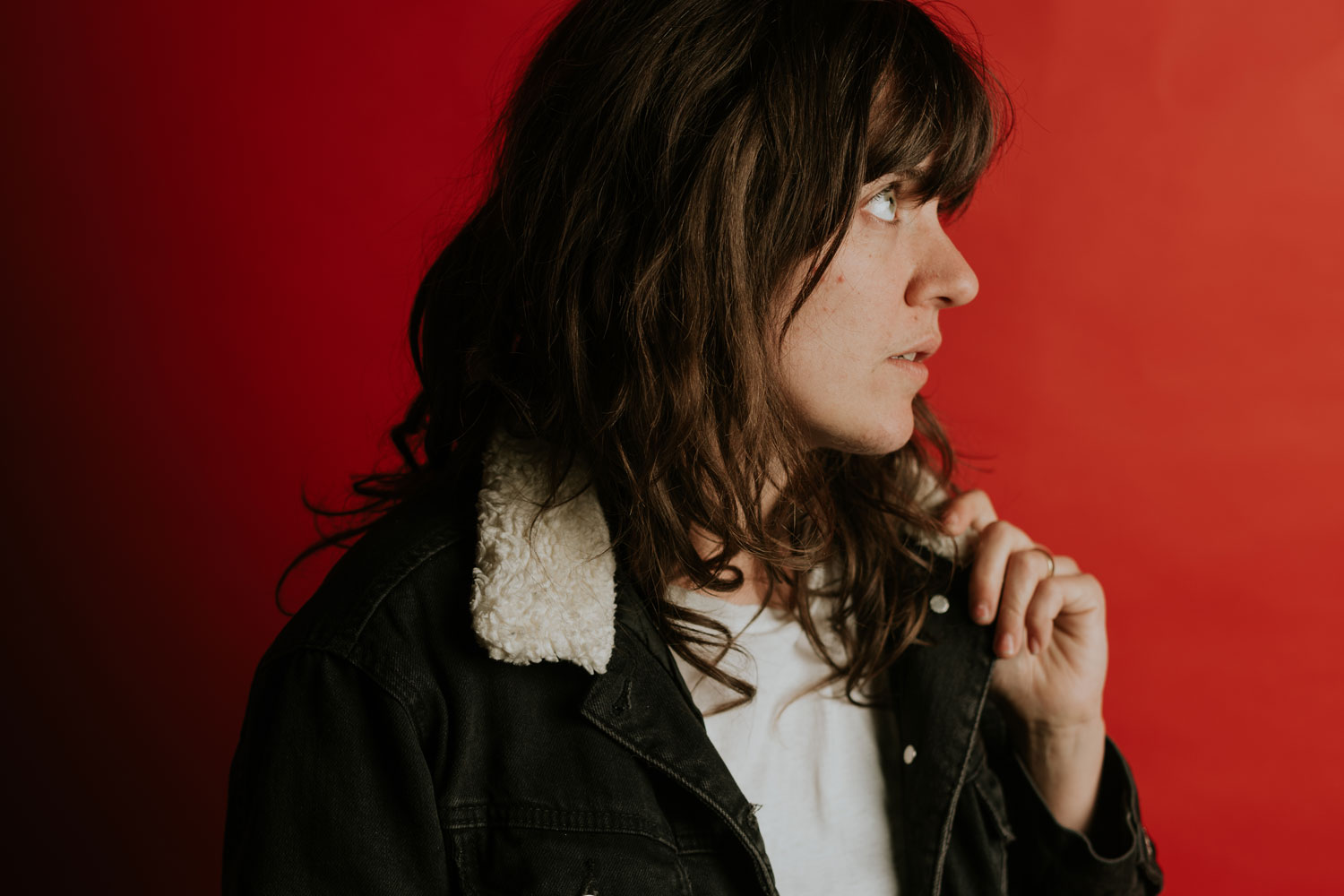
Courtney Barnett talks of fears, frustration, anger and the need for something better. ‘Tell Me How You Really Feel’ is a record about understanding and reason. It’s about both sides of the story, while not giving anyone a free pass. Through it all though, she never talks down to or for anyone else.
“A lot of it is me trying to comfort friends. It’s about seeing people go through so much pain lately and trying to understand how to comfort it. Or maybe you don’t have to comfort it, maybe you just feel it and move on,” she says, still working things out in real time. “It’s about trying not to tell people how to feel, or telling myself how to feel. It’s about just acknowledging the feeling, then understanding it, and then moving on from it.”
In this horrible, divisive world, “that’s the only conclusion I’ve come up with,” she says. “I thought the record was for me, and all about me, but I ended up writing so much about other people. In that, there’s a reflection of myself, so it ended up helping me in a roundabout way, but it was for people I knew who were suffering and were having troubling times.”
[sc name=”pull” text=”Nothing really matters, but it does matter to be kind”]
‘Tell Me How You Really Feel’ is conflicted and wants peace. “I’m always trying to understand this anger,” she explains. “It’s the same as hating ourselves. Obviously, that’s about outwards hate towards other people but that inward hate we also learn somehow.”
The record doesn’t find answers, but perhaps that’s the point. Tracks like ‘Sunday Roast’ feel resiliently hopeful. “I know you’re doing your best,” it sings. “I think you’re doing just fine,” and that feels important. That line, that idea keeps coming back and round and round in circles in the whole album.
“That relates to everything. I relate that to everyone around me, and it relates back to me. I’m sure people close to me have said a similar thing to me in some way, every day for the last year. It’s a positive thing I think. The idea that nothing really matters, but it does matter to be kind. It’s just the smaller things that are important.”
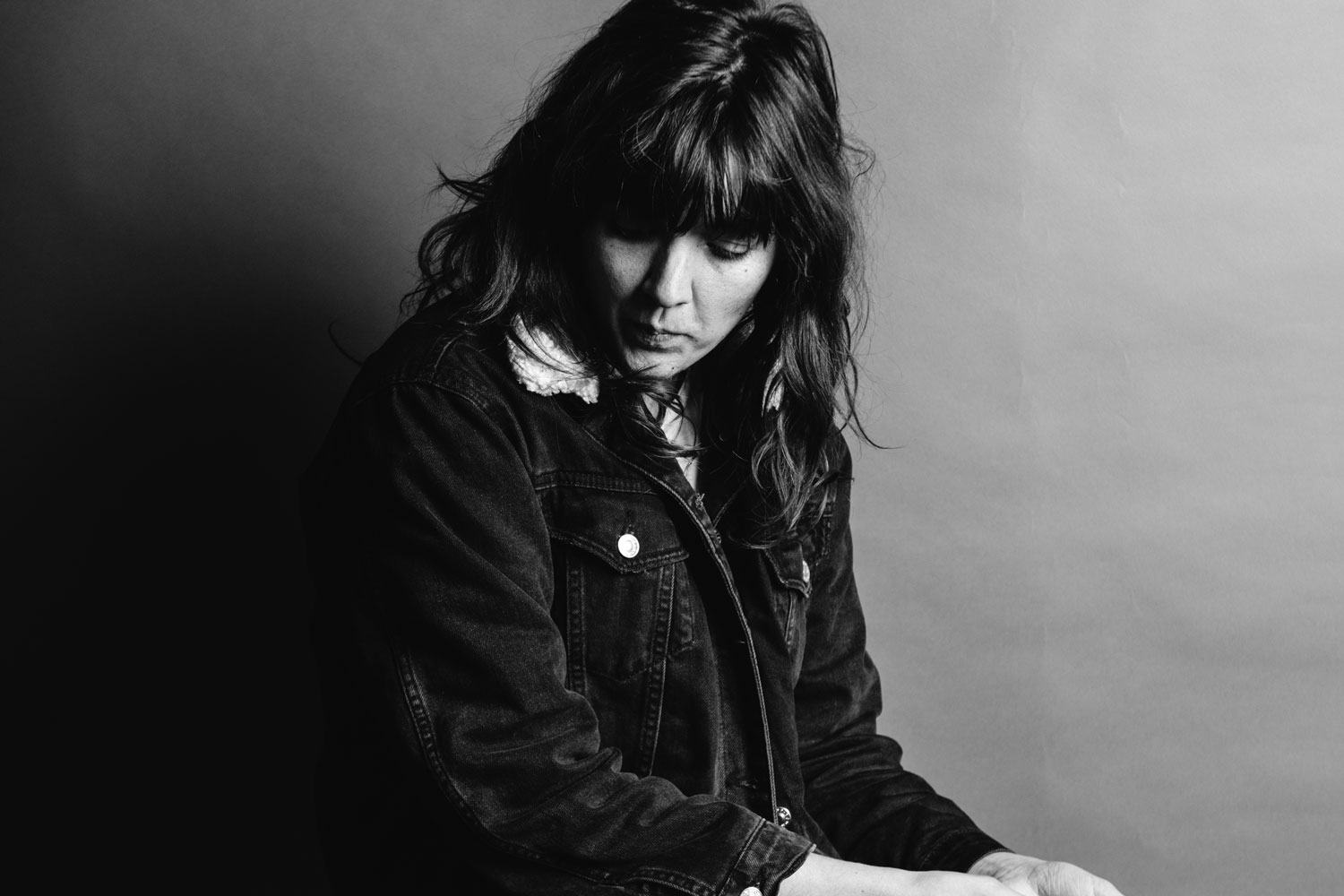
And in those small moments of care, hope and being kind, Courtney and her audience find themselves.
“For the majority of the time, we’re so good at stretching any song to be about our own thing that we’re going through at that given moment. I do it all the time. Love songs depend on if you’re in love or heartbroken. Normally, you can stretch a song to mean whatever you want it to mean and I love that, that personal interpretation is so flexible. Sometimes it’s just said better by other people in one line.
“When I started touring, the first places I went were New York and London for some random showcase things. Then people started turning up to shows knowing who I was. When people buy a ticket on the other side of the world and turn up, that’s was like, wow. You’re singing the words together and talking to people afterwards, and they’re telling me what connections they’ve made to stories and why they could relate, I never really thought about the fact other people could have gone through the same things I have. It feels a bit more normal now because I have that same reaction to music.
“When I realised that I was making music and people were having that reaction to it, it made sense, but it’s one of those weird, self-esteem things. ‘No one cares what I think’. ‘Oh, wait, yeah they do’. Other people have felt what I felt. I love the feeling of when a song becomes someone else’s. That final, decisive finality of it is kinda scary. You wonder if you had more to say or if you said it right the first time but yeah, It’s quite a relaxing feeling, knowing that it’s moved on and you don’t have to own it anymore because everyone owns it.”
[sc name=”pull” text=”You’re always crueller to yourself because no one can hear what you’re saying”]
There’s a song on ‘Tell Me How You Really Feel’ called ‘Crippling Self Doubt And A General Lack Of Confidence’ which is unsurprising really when you consider ‘Pedestrian At Best’. Those fears about self-worth bob to the surface numerous times on record and in conversation, but Courtney really does believe that what she does is important. Today, anyway.
“I have so many moments of not thinking that, but on a good day, I think that it is important. If I was talking to another songwriter friend of mine and they were full of self-doubt, of course I’d say ‘It’s so important because people connect to what you’re saying and it helps them. It can save peoples lives’. I have friends who I truly believe that of their songs, but it’s hard to tell yourself that. Like anything, you can always be more caring to your friends or someone else. You’re always crueller to yourself because no one can hear what you’re saying, but yeah, I think it is. I think it’s important. I think art is important.”
Throughout the struggles, the conflict, the indecisive conversations and just letting things be, ‘Tell Me How You Really Feel’ carries “that reoccurring message that everyone is suffering in some way or another. It’s not just you.
“How do you tap into that and support it in some way or back it up?” Courtney asks. “I always hope that people can find some level of connection in my music, however, and whatever it means, and it helps them somehow. That’s the only thing I’ve got from music, that feeling of relating and of not feeling alone. When you hear someone else say that one line and that’s exactly how you feel, in that small moment you feel less alone, and it makes sense, and it’s comforting. That’s all I can ever hope my songs would ever provide someone.”
“Hope and love and all that stuff, it’s incredible,” she considers. “It’s so much easier to be negative, to hate things, to hate people and to feel hopeless. It takes a bit of effort to be positive and to try to be positive to people around you when you’re feeling the opposite. I have faith that people have more love in them than hate.” [sc name=”stopper”]
Courtney Barnett’s album ‘Tell Me How You Really Feel’ is out now. Taken from the May issue of Dork, order a copy or subscribe below.





